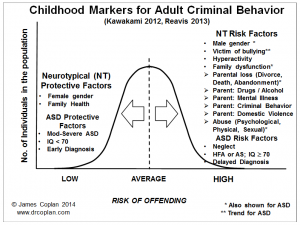February 23rd, 2015 by drcoplan

James Coplan, MD, continues his review of the OCA report on the shootings at Sandy Hook Elementary School, focusing on Nancy Lanza’s mental health.
Previous articles on this topic:
Shooting At Sandy Hook Elementary School – Report Of The Office Of The Child Advocate.
Who’s Story Is It, Anyway?
Unfounded Claims Of Illness
Now we enter the realm of informed speculation.
We know that Nancy Lanza represented herself to others as having a variety of medical disorders (Multiple Sclerosis, seizures, an immunologic disorder). What we don’t know is whether she actually believed it herself. If she truly believed that she was suffering from a crippling, terminal illness, despite repeated normal exams and test results, that would point us in the direction of Illness Anxiety Disorder, Somatic Symptoms Disorder (SSD), and Conversion Disorder (Functional Neurological Symptoms Disorder). If she was experiencing symptoms (albeit psychogenic in origin), then SSD or Conversion Disorder rise to the top of the list. If she were consciously “making it all up,” then malingering would need to be considered, but given the totality of what we know, this option seems unlikely. If she were inventing illness in herself in a “driven” way, stemming from unconscious, deeply rooted psychiatric need, then Factitious Illness Disorder becomes a leading contender, diagnostically. Regardless of exactly how the cards fall, “Mrs. Lanza’s statements regarding her medical condition…[raise] important questions regarding the parents’ mutual understanding of the trajectory of [Adam]’s educational and mental health treatment, much of which was guided by Mrs. Lanza’s interpretation of unfolding events.” (OCA p 31) Read the rest of this entry »
ASD and Crime: More on risk factors
June 8th, 2014 by drcoplan
Picking up where we left off last time:
ASD and Crime: Risk Factors

(Click to enlarge)
Higher functioning ASD, Asperger Syndrome, and IQ in the normal range carried a greater risk than classical autism and IQ below 70. Is one “increased” or is the other “decreased”? Hard to say. It’s possible that the individuals with HFA / AS are more prone to criminal behavior for some reason. Conversely, individuals with classical autism and/or intellectual disability have limited unsupervised access to the community, and therefore little opportunity to commit crime. Both factors may be relevant. This leads back to my point a few posts ago about why we shouldn’t fixate on some “average” risk, since this “average” may be composed of very different subgroups. (Anything published before 1994 is based on the DSM-III-R definitions of autism and PDD-NOS, which are skewed towards lower-functioning kids. The “explosion” in diagnosed cases of ASD, and the increasing proportion of kids with high functioning ASD and/or Asperger Syndrome came after the publication of DSM-IV [1994], and the implementation of IDEA [1990]. Thus, the older literature appeared to lend some support to the claim that persons with autism don’t commit violent crime, or do so at a lower rate than the general population. Now that the reported prevalence of ASD exceeds 1%, and the composition of the ASD population has shifted so that the majority of persons on the spectrum have mild atypicality and IQs in the normal range, all bets are off in terms of the older literature. Go back to my previous post and read what Mouridsen and Woodbury-Smith have to say about the complete absence of meaningful epidemiologic data: https://www.drcoplan.com/elliot-rodger-what-we-know-and-what-we-dont ) Read the rest of this entry »














